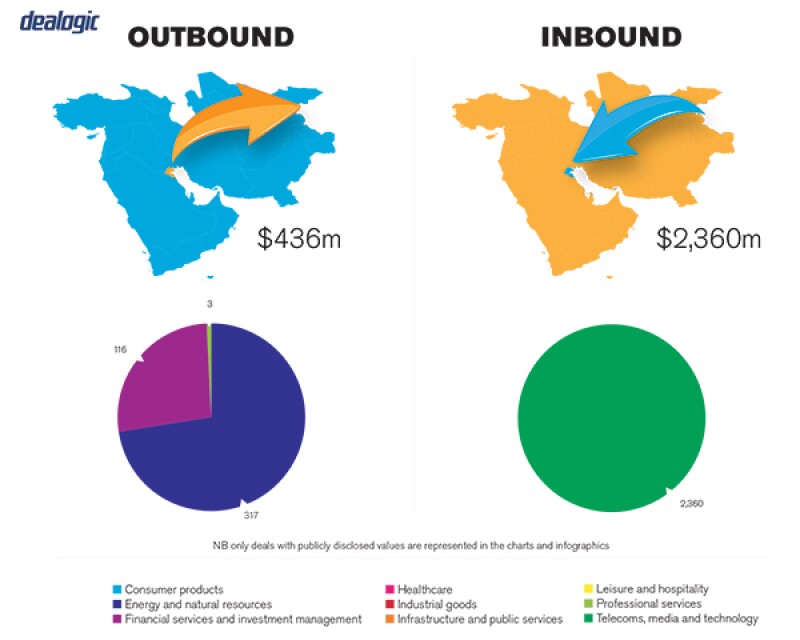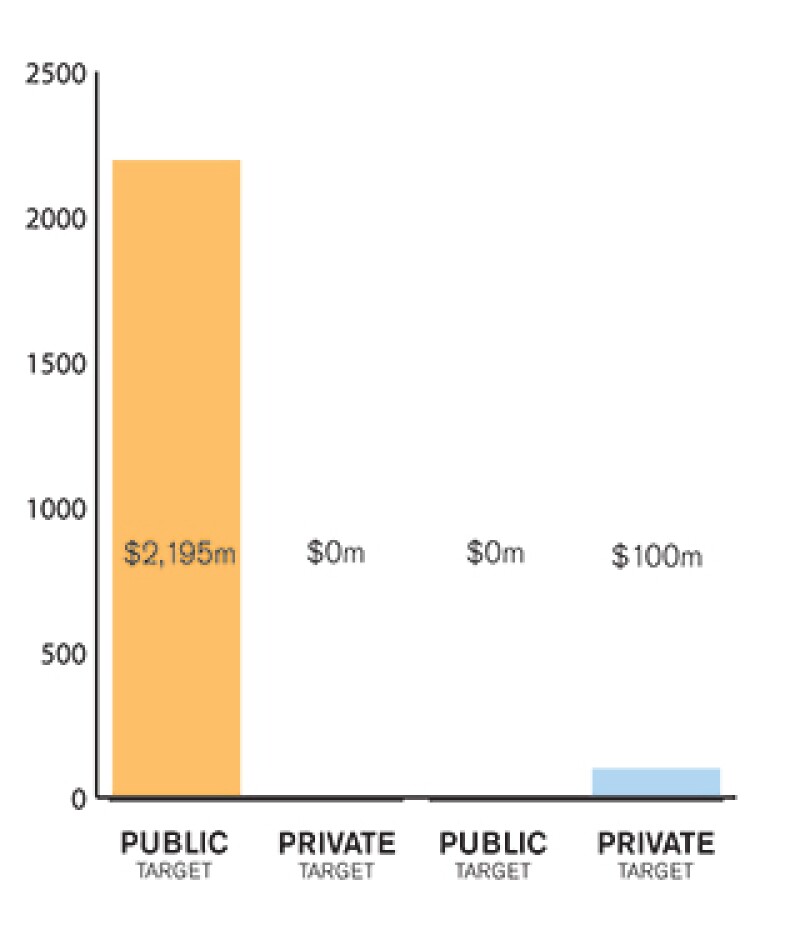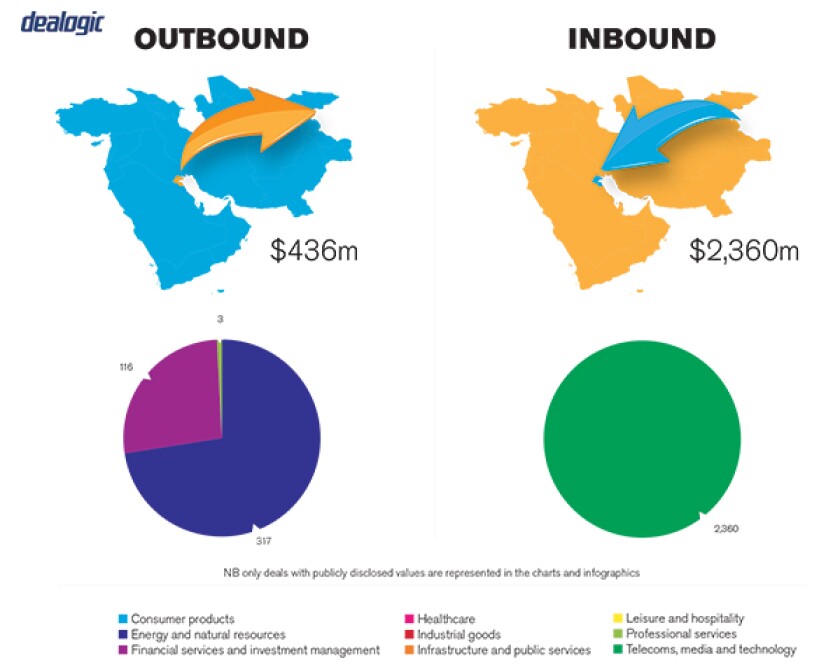SECTION 1: Market overview
1.1 What have been the key trends in the M&A market in your jurisdiction over the past 12 months and what have been the most active sectors?
M&A transactions in the telecom and consumer goods sectors have been particularly active in the market in the last 12 months. Furthermore, although not common in the Kuwait market, warranty and indemnity insurance (further discussed in 5.7 below), has been seen in recent transactions.
1.2 What M&A deal flow has your market experienced and how does this compare to previous years?
This information is not publicly available in Kuwait. That being said, the pace of M&A activity in 2017 remained broadly in line with 2016.
1.3 Is your market driven by private or public M&A transactions, or both? What are the dynamics between the two?
The Kuwaiti market is primarily driven by private M&A transactions.
1.4 Describe the relative influence of strategic and financial investors on the M&A environment in your market.
We are of the view that financial investors have a limited impact on the M&A market in Kuwait.
SECTION 2: M&A structures
2.1 Please review some recent notable M&A transactions in your market and outline any interesting aspects in their structures and what they mean for the market.
ASAR assisted the shareholders of a Kuwaiti food delivery start-up in connection with its sale in June 2017. This transaction set numerous landmarks in terms of deal structuring and its valuation, which will shape Kuwait's M&A market going forward. More specifically, innovative structuring was required to enable the acquisition of 100% of a Kuwaiti entity. Furthermore, the sale terms were carefully structured to satisfy the commercial requirements of the sellers and the buyer incorporating two payment escrows, holdback arrangements and detailed earn out arrangements. The valuation makes this the highest value exit for a start up in Kuwait.
ASAR assisted a foreign purchaser in connection with the acquisition of shares, the assignment of a shareholders' loan and a participation interest in a joint-venture in connection with a private company operating in the oil sector in Kuwait. This transaction was of particular interest in light of the complex legal and financial structure of the target and its significant impact on the due diligence process (from a legal and financial perspective).
ASAR assisted the buyer in connection with the acquisition of shares and real estate assets relating to the operation of several private English schools in Kuwait. This transaction is of particular interest due the innovative structuring required to enable the acquisition of real estate in light of foreign ownership restrictions.
2.2 What have been the most significant trends or factors impacting deal structures?
See our comments with regards to the new special trades regime further described in 3.1 below.

SECTION 3: Legislation and policy changes
3.1 Describe the key legislation and regulatory bodies that govern M&A activity in your jurisdiction.
Law No. 7 of 2010 as amended (the CML) and its executive bylaws (the CML Bylaws together with the CML, the CML Rules) (particularly Book IX (Mergers and Acquisitions) of the CML Bylaws), is the primary legislation governing public M&A in Kuwait. The CML Rules apply to M&A transactions where there is an acquisition or consolidation of control of:
a Kuwait incorporated company listed on Boursa Kuwait (formerly known as the Kuwait Stock Exchange);
a non-Kuwait incorporated company with a secondary listing on Boursa Kuwait; or
an entity licensed by the Kuwait Capital Markets Authority (CMA) to conduct regulated activities subject to the CMA's oversight (e.g. brokers, portfolio managers, custodians, etc.).
The CMA is the primary regulator for public M&A activity in Kuwait. The CML Rules provide a statutory framework for public M&A in Kuwait where there is a takeover offer for 100% of the share capital of a company listed on Boursa Kuwait; and a mandatory takeover offer which must be made to remaining shareholders when the offeror acquires more than 30% of the shares of a listed company.
Inbound Outbound |

|
NB: Values may exclude certain transactions, for example asset acquisitions/sales |
3.2 Have there been any recent changes to regulations or regulators that may impact M&A transactions or activity and what impact do you expect them to have?
The CMA recently issued certain rules with respect to special trade transactions (STT) in connection with listed securities. Moreover, these rules have been adopted and implemented by Boursa Kuwait (the local stock exchange in Kuwait). As STTs only apply to listed securities, any such transaction would also have to comply with the Capital Markets Law and its executive regulations as well as the Boursa Kuwait regulations. The Special Trade Rules (the Rules) were issued by the CMA by way of resolution (the Resolution) to govern STTs in Kuwait. The Resolution indicates that Boursa Kuwait should issue and adopt further specific regulations in this regard in the context of the Rules. However, with regard to such specific regulations on executing the special trade, the rules/regulations governing same are as set out in the Boursa Kuwait form required to process the transaction (the Sale Form). The Sale Form incorporates certain declarations by the buyer, seller and their brokers. More specifically, the Rules stipulate that STTs may only be concluded between one buyer and one seller, provided the targeted shares are less than 5% of the share capital of the target company. In the event a transaction contemplates a transfer of shares is above the abovementioned threshold, such transfer may be split in a series of transactions.
One of the main benefits of the STT regime is that the relevant sales will proceed directly between the buyer and the seller without the need for a screen trade or a block trade auction, which normally applies to the sale of 5% or more of the shares of a listed company in one transaction. Special trades should be conducted for cash consideration at a price regulated by the Rules. More specifically, the Rules provide that the price should not fall below or exceed the preceding day's price by more than 20%.
One other important factor impacting deal structures is that acquisition finance is generally possible in Kuwait given that there are no financial assistance rules. However, because of corporate benefit considerations, the parties to an M&A transaction have to put in place various structures in order to ensure the funds obtained through such financing are pushed down the corporate structure.
3.3 Are there any rules, legislation or policy frameworks under discussion that may impact M&A in your jurisdiction in the near future?
We understand that amendments to the Competition Law and the executive regulations thereto will be forthcoming, however, we note that to date no such legislative amendments have been promulgated and/or issued in the Kuwait Official Gazette.
SECTION 4: Market idiosyncrasies
4.1 Please describe any common mistakes or misconceptions that exist about the M&A market in your jurisdiction.
Some of the mistakes or misconceptions with regards to the Kuwaiti market include: poor disclosure processes because sellers are sometimes inexperienced in the M&A processes, and targets do not keep track of all the documents needed to be disclosed to the buyers; and misconceptions about the regulatory processes which are often more complicated than what the parties expect. In addition, a common mistake made by practitioners is to import legal structures and documentation developed in other jurisdictions without a proper adaptation of same to the peculiarities of the Kuwait legal system. This can lead to complications in the execution phase of the transaction and in the enforcement of rights arising under M&A transaction documentation.
4.2 Are there frequently asked questions or often overlooked areas from parties involved in an M&A transaction?
An area that is often overlooked and/or paid less attention to is due diligence. In particular, appropriate translation of due diligence findings into contractual protections, whether by means of pre-closing remedial actions, associated variation of commercial terms, special indemnities or other methods is deficient. This often arises because the legal practitioners that carry out the due diligence do not always lead the negotiation of transaction documentation. Parties involved in an M&A transaction also often overlook certain aspects of the Kuwait competition law. Furthermore, the rendering of M&A/investment advisory services with respect to securities onshore of Kuwait is a regulated securities activity under the CML Rules. As such, foreign services providers should be aware of the restrictions applicable in connection with the rendering of such services onshore of Kuwait.
4.3 What measures should be taken to best prepare for your market's idiosyncrasies?
The best measures to prepare for the market idiosyncrasies is to perform an adequate due diligence of the target, engage well-experienced law firms with a proven M&A track record, manage the expectations of the sellers (with respect to timing and requirements specific to the jurisdiction) and encourage parties to retain suitably qualified financial advisors.
SECTION 5(a): Public M&A
5.1 What are the key factors involved in obtaining control of a public company in your jurisdiction?
The key factors are the following:
Obtaining all relevant regulatory consents from the applicable regulatory body, such as for example, the CMA for licensed companies and/or (as applicable) the CBK vis-à-vis financial institutions which are subject to supervision by the CBK.
Disclosure of the transaction as required per the CML Rules.
Abiding by the laws and regulations of each sector. For example, pursuant to the CML Rules, for companies listed on the exchange of Boursa Kuwait, a mandatory takeover offer (MTO) must be launched by the bidder once the bidder has come into possession of more than 30% of the voting shares of a target company listed on the exchange.
5.2 What conditions are usually attached to a public takeover offer?
An MTO must not be subject to conditions that can only be satisfied at the discretion, and in the subjective judgment, of the bidder or the target company, or where their satisfaction is within the control of the bidder or the target company. Only voluntary takeover offers (VTO) may be subject to conditions required by the bidder. However, in the case of an MTO takeover offer, no conditions may be imposed by the bidder.
5.3 What are the current trends/market standards for break fees in public M&A in your jurisdiction?
The terms of the agreement are generally left to the discretion of the parties. There are no specific rules in Kuwait dealing with break fees and parties are free to agree specific arrangements to this effect. We are not aware of any trends/market standards in this regard.
SECTION 5(b): Private M&A
5.4 What are the current trends with regard to consideration mechanisms including the use of locked box mechanisms, completion accounts, earn-outs and escrow?
Locked box mechanisms are common in Kuwait. Earn-outs and escrow are very common in large transactions of KD30 million ($100 million) and above, whereas completion accounts are less used in the Kuwaiti market.
5.5 What conditions are usually attached to a private takeover offer?
While a private takeover offer is permissible under the law, there is no trend that has been established in the market given that this is relatively new.
5.6 Is it common practice to provide for a foreign governing law and/or jurisdiction in private M&A share purchase agreements?
It is quite common to have acquisition documents governed by foreign law (for example English law).
5.7 How common is warranty and indemnity insurance on private M&A transactions?
Warranty and indemnity insurance, although not common, has been seen in recent transactions.
5.8 Discuss the exit environment in your jurisdiction, including the market for IPOs, trade sales and sales to financial sponsors.
Exits in the market are usually structured as trade sales.
SECTION 6: Outlook 2018
6.1 What are your predictions for the next 12 months in the M&A market and how do you expect legal practice to respond?
We anticipate a steady increase in public M&A activity in Kuwait over the next 12 months. The outlook for public M&A in Kuwait continues to benefit from the recent promulgation of the relatively new CML Bylaws and Law No. 1 of 2016 (the Companies Law).
About the author |
||

|
|
John Cunha Partner, ASAR-Al Ruwayeh & Partners T: +965 2292 2700 F: +962 22400064 John Cunha is a partner at ASAR and has been with the firm since April 2006. He practices in the areas of banking and finance, capital markets and mergers and acquisitions. Cunha holds a law degree awarded by the University of the Free State, South Africa in 1999. In 2002 he was also awarded a master of business administration degree (MBA) from the University of the Free State, South Africa (in collaboration with De Paul University in Chicago, USA). He also holds a master of laws degree (international trade law) (LLM) awarded by the University of Stellenbosch, South Africa. Cunha was admitted to the South African bar in 2000 and admitted as a solicitor of the Senior Courts of England and Wales in 2007. Cunha's practice languages are English, Afrikaans and Portuguese. |
About the author |
||

|
|
Laurent Levac Senior associate, ASAR-Al Ruwayeh & Partners T: +965 2292 2700 F: +962 22400064 Laurent V Levac is a senior associate at ASAR and has been with the firm since August 2014. Prior to joining ASAR, Levac worked for international law firms with postings in France, the United Kingdom, the Netherlands and Canada. Levac currently practices in the areas of mergers and acquisitions, private equity, corporate law, banking and finance and private clients. He holds a bachelor's degree in civil law (LLL) and bachelor's degree in common law (LLB) awarded by the University of Ottawa, Ontario, Canada, respectively in 2002 and 2003. He also holds a master's degree in American common law (LLM), awarded by Cornell Law School, New York, USA in 2005. Levac was admitted to the Quebec Bar (Canada) in 2005 and the Law Society of England & Wales in 2010. His practice languages are English and French. |

